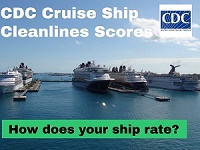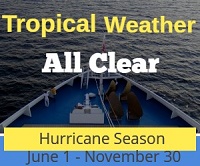Cruise Ship Safety
Important information every cruise passenger needs to know about cruise ship safety BEFORE you leave
Venice
Get to know our slice of Paradise - located on the SW Coast of Fl.
Attractions
Beaches
Canoe/Kayak
Boat Launches
Boat Charters
Fishing Charter
Fishing Piers
Historical Sites
Golf
Parks
Hotels
Relocate
Venice Map
Links
Coastal Seismic Areas
Alaska
Caribbean
Hawai`i
Indonesia
Italy
Japan
Volcano Maps
More Hazards
Tropical Cyclones
Weather Updates
Travel Warnings
Safety Overview
Cruise Ship
Fires
Sunken Passenger Ships
Sudden
Lists/Rogue Waves
Personal Safety Abroad
Source: U.S. Embassy/Nassau
The safety information below is addressed to U.S. citizens, yet it's good advice for any traveler.
Your U.S. citizenship does not make you exempt from full prosecution under another country's criminal justice system, and the U.S. government cannot bail you out. Many countries impose harsh penalties for violations that would be considered minor in the United States, and unlike the U.S., you may be considered guilty until proven innocent. Ignorance of the law is no excuse, so be informed. Go from here.
Keep track of the credit limits on your credit cards. Not only does this make good financial sense, but also good legal sense. Americans have been arrested for innocently exceeding their credit limit abroad. Ask your credit card company how to report the loss of your card from abroad. Keep in mind, 1-800 numbers do not work from abroad, but your company should have a number that you can call while you are overseas.
Take plenty of pictures, but only if you know it’s okay. In many countries you can be detained for photographing security-related institutions, such as police and military installations, government buildings, border areas and transportation facilities. If you are in doubt, ask permission before taking photographs.
Make sure your prescription medication is not considered an illegal narcotic. If you are going abroad with a preexisting medical condition, you should carry a letter from your doctor describing your condition and medications, including the generic names of prescribed drugs. Any medications carried overseas should be in their original containers and clearly labeled. Check with the foreign country's embassy here in the U.S. to make sure your medications are not considered illegal narcotics. Find the foreign embassy’s website.
Don't accept packages from anyone. Some Americans think it's a good idea to take advantage of an offer for an all-expense paid vacation abroad in exchange for carrying a small package in their luggage. However, if you are caught, ignorance is no excuse. If the package contains illegal drugs or substances, the fact that you didn't know will not reduce the charges. You could miss your flight, your exams, or several years of your life during a stay behind bars.
Avoid participating in demonstrations and other political activities. Here in the U.S. we enjoy many liberties. However, political activities in other countries can result in detention and/or deportation by officials. Even demonstrations that are intended to be peaceful can sometimes turn violent, and you don't want to be caught in the middle. You can "stick it to the man," but on your own soil.
If you find yourself in a legal jam, contact the closest U.S. embassy or consulate for assistance. Keep in mind, U.S. Consular employees cannot arrange for local officials to release detained American citizens.
advice > Safety
Are We Safe?
Cruise Ship Emergencies and Safety Plan
Cruise passengers need to know what to do in case of an emergency. The idea of being left alone on a luxury cruise ship to fend for ourselves is without a doubt disturbing. When a captain abandons ship before passengers, it should be immediately apparent the situation is dire.
Maritime incidents/accidents involving passenger injuries and/or fatalities are not a common occurrence considering the number of passenger ships sailing worldwide; It's unlikely you will experience any problems during your cruise. Still, only a fool for a passenger would disregard the possible risks associated with a cruise vacation.
Before your cruise
- Know before you go! Even if you have a good travel agent, you shouldn't solely rely on just one point of view. Learn as much as you can before you go. Research the customs and social norms of the places you intend to visit.
- Join a Facebook group for information. You don't need to comment to participate, but you can read and learn. There's a group for most every interest and cruise line/ship.
- Do your research on websites like Shipdetective - save links for easy access and stay up-to-date on current cruise news.
- Invest in a passport for every member of your traveling party at least six months before your cruise. Adult passports are valid up to ten years.
- Have a family/personal safety plan.
After You Board
- Read the safety information on the back of your stateroom door for your muster location, and look at your Fun Times for the Safety Drill start time.
- Don't lean over, crawl on, climb, sit or play around the outer deck railings. And don't play on the outer decks if you plan to party hard.
- Pay attention to all announcements from the Captain.
- Stay off the open decks in high winds and storms.
- Keep the the camouflage clothing on the ship. In certain countries in the Caribbean and South America, wearing any type of camouflage could send you back o the ship for an outfit change, or worse, you could be arrested/fined.
More advice for first time cruisers
Risks associated with cruising
The following are examples of what can go wrong during your cruise vacation.
FireGrounding
Collisions
Mechanical problems
High winds and waves
Natural Hazards
Norovirus/Coronavirus
Incidents
Sunken Ships
Watch the NOVA Video: Why Ships Sink at: http://www.pbs.org/wgbh/nova/tech/why-ships-sink.html
How Can It Happen?
A poor design or failure of the ship's equipment or pressure hull can cause a ship to sink.
Failure or leaking of the hull is a serious problem that can lead to the loss of buoyancy or the free surface effect and the subsequent sinking of the vessel. Even the hulls of large modern ships have cracked in heavy storms. Failure of pumps can lead to the loss of a potentially salvageable ship with only a minor leak or fire. Failure of the means of propulsion, such as engines, sails or rigging, can lead to the loss of a ship. When the ship's movement is determined only by currents or the wind and particularly by storms, a common result is that the ship is unable to avoid natural hazards like rocks, shallow water or tidal races. To remain buoyant, the hull of a vessel must prevent water entering the large air spaces of the vessel (known as downflooding). Clearly for the ship to float, the submerged parts of the hull will be watertight, but the upper parts of the hull must have openings to allow ventilation to compartments, including the engine room, for crew access, and to load and unload cargo. Example of this type of accident: Dec 2004 M/V Selendang Ayu.
Weather conditions
High winds and waves play a huge role in the safety of ocean travel. Tropical storms and rogue waves are a freak of nature; unpredictable and beyond our control. Rogue waves were considered myth until an actual monster wave was caught on camera - these waves have caused considerable damage and fear among passengers. Example of large waves damaging staterooms on the Rhapsody of the Seas as reported by a passenger in December 2005 on Cruisejunkie.com:
"On her way back to Galveston from Cozumel, was buffeted by 70 mph winds and large waves and listed, held in position for 3 minutes. In the dining they were getting ready for main dining and lost wine bottles, dishes. and glasses. The shows were cancelled. Four cabins on Deck 4 were flooded with water -- the occupants had to be transferred to other staterooms and all their wet clothing laundered. They tore up the rugs and hallway and laid brand new carpet all done by the next sailing on 12/18."
More Examples:
Mar 2004 - Lady D, Pontoon Water Taxi, 23 passengers, 2 crew members ( 5 fatalities).
Apr 1998 - Evanick - Fishing vessel with 4 crew onboard ( 4 fatalities).
Cruise Ship Fires
Star Princess
March 23, 2006
At approximately 3:10 AM, as the ship was en route from Grand Cayman to Montego Bay, a fire broke out in the passenger accommodations, and spread to adjacent cabins. About 150 cabins were damaged by the fire which may have been started by a cigarette. Passengers were immediately notified of the fire using the public address system and requested to report to their muster stations. The company confirmed that one passenger had died following a cardiac arrest, two passengers had significant smoke inhalation injuries and nine passengers with had minor complications resulting from smoke inhalation. The fire was extinguished, and the ship proceeded to Montego Bay which it reach around noon. Passengers in the cabins affected by the fire were provided hotel rooms ashore in Montego Bay; other passengers remained on the ship until their flights home were arranged. The cruise began March 19 in Fort Lauderdale. All cruises are cancelled until May 15th. Star Princess Fire March 2006 Incident Report (PDF File). More Ship fires
Human error
Navigation errors and other human errors can lead to collisions with another ship, rocks, an iceberg, etc. or running aground. Captain's don't always listen to the advice and warnings of others and ultimately risk the lives of passengers and crew. Tragic accidents can happen when vessel masters ignore warnings from USCG as well as fellow boaters. The Costa Concordia accident is an unfortunate example. More Sunken Ships
Sudden Lists & Rogue Waves
Celebrity Infinity
February 1, 2007
From Cruise Critic: We were on the second floor of the dining room at about 6:30PM when we were broadsided by what must have been two enormous waves. Two folks at our table of eight, were knocked to the floor with water, wine, dishes etc. spilled on them. At the table next to us, a woman was injured and taken out on a stretcher. Passengers throughout the ship later had stories of "where they were and what happened" when the waves hit. Every bottle of booze and all glassware all over the ship hit the floor. The books in the library were all on the ground. The Grand piano in the theater broke legs and pedals.
Princess Cruises Crown Princess
July 18, 2006
On July 18, 2006, the cruise ship Crown Princess, which had been in service about a month, departed Port Canaveral, Florida, for Brooklyn, New York. Slightly more than an hour after departing, while on a heading to intersect its track to Brooklyn, the vessels automatic steering system began a turn to port. In an effort to counter the effects of a perceived high rate of turn, the second officer, the senior watch officer on the bridge, disengaged the automatic steering mode of the vessel’s integrated navigation system and took manual control of the steering. The second officer turned the wheel first to port and then from port to starboard several times, eventually causing the vessel to heel at a maximum angle of about 24 to starboard. The heeling caused people to be thrown about or struck by unsecured objects, resulting in 14 serious and 284 minor injuries to passengers and crewmembers. The vessel incurred no damage to its structure but sustained considerable damage to unsecured interior components and to cabinets and their contents. More Rogue Waves and Sudden Lists
Natural Hazards
Tropical cyclones, flooding, earthquakes, tsunamis and volcanoes - all can have an effect on your cruise. Click on the links to learn more.







